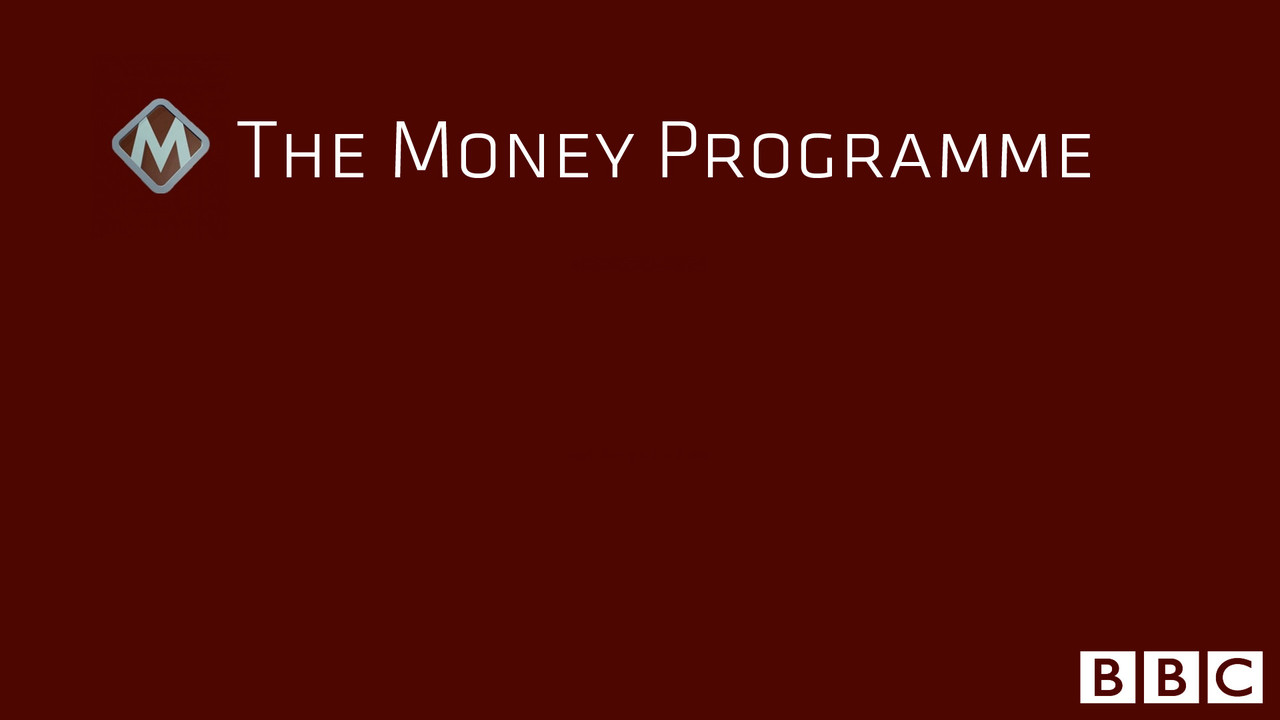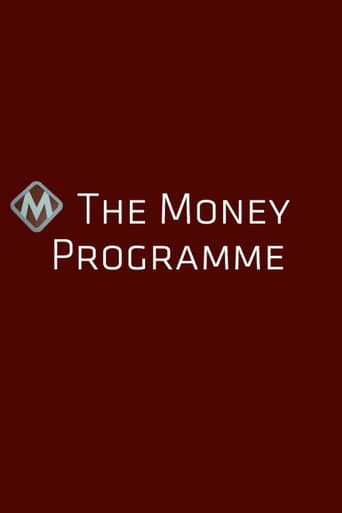With 30 Day Free Trial!
The Money Programme
1966
Britain's most popular financial and business programme.
Watch Trailer
The Money Programme Season 2009 Full Episode Guide
A decade ago, the UK was a net importer of television programmes. Now we're one of the most powerful players on the international television stage, exporting more than half the world's TV "formats". But a transformation in the way viewers consume television is turning the industry's business model on its head and threatening the long-term future
Financial speculators have been blamed for inflicting recession on the rich world and starvation on poorer countries. They have been accused of buying up contracts for vital commodities - not to use, but to hold in the hope of price rises. And, by buying up billions of dollars worth of food and oil contracts, it's claimed that they artificially drove up prices, wrecked businesses and put food out of the reach of people in poorer countries.
Newspapers are facing tough times. Over the last decade, the UK's favourite dailies have lost some 2.25 million readers. Falling circulations mean less money through the till and newspapers' other main source of income - advertising - is also drying up.
James Caan takes a trip out of the Dragons' Den to look at the job market as unemployment figures in the UK reach their worst levels in decades. Unemployment could reach over three million by 2011. In Scotland, the jobless number could almost double in the next 12 months. It is a problem that is affecting every sector from finance to manufacturing. Some employers will have to cut 75 per cent of their staff. Is there any cause for optimism?
Curry is Britain's favourite food. And it's big business. Curry houses, takeaways and ready meals make up an industry worth more than £3bn. At least 18 tonnes of chicken tikka masala is eaten across the country each week, served up by Britain's 15,000 Indian restaurants.
In the last of the Money Programme series looking at Britain in recession, financial journalist and author Merryn Somerset-Webb sets off to find out what we should be doing with our money as risk is high, interest rates are low and pensions are in turmoil. Merryn meets experts and savers of all ages who are each tackling the savings dilemma in a different way.
For the past ten years, the British have shopped till they dropped. Now recession is threatening the nation's favourite pastime, and one of its biggest industries. It is the latest blow for many of Britain's beleaguered high streets. Retail guru Mary Portas wants to discover why boom towns are becoming bust towns, and what can be done to stop the extraordinary number of shop closures around Britain.
In the second of this Money Programme series looking at different sectors of Britain's economy in the recession, Newsnight's Paul Mason covers the moving story of rising unemployment from the shop floor of two struggling manufacturing companies in the Midlands.
As the recession bites into our wallets one of the first things we've tried to cut back on is our spending on food. And the downturn is affecting not only how much we fork out on food but also what we are putting into our shopping baskets.
The Money Programme's Fiona Bruce gained exclusive access to Bill Gates as he prepared to step down from full-time involvement with Microsoft in June 2008. His audacious mission to put 'a computer on every desk and in every home' is now close to a description of modern life. In building his multi-billion dollar company, Gates made himself the richest man in the world, but he has also been dogged by controversy, as his ruthless leadership contributed to Microsoft being sued by the US Government. In a special one-hour edition of the Money Programme, Fiona Bruce presents the definitive profile of Bill Gates as he embarks on his latest challenge - giving away the billions he has amassed, through the charitable foundation he runs with his wife and his father. She examines the fortunes of Microsoft as it faces up to competition from internet-based companies. And the programme talks about Gates the man, the businessman and the philanthropist with a who's who of his friends, colleagues and rivals.
Sir Gerry Robinson, the UK's foremost business troubleshooter, takes a look under the bonnet of Britain's troubled car industry. Sir Gerry gets stuck in on the production line at Nissan's Sunderland factory, finding that even this, Britain's most efficient car plant, is struggling. He finds out what the industry must do for itself and what the bosses and experts say the Government needs to do to keep the business alive. Searching for short- and long-term answers to the car industry's problems, Sir Gerry test-drives the world's first electric sports car, challenges Lord Mandelson on the Government's efforts to lead Britain's car industry through the recession, and asks billionaire inventor Sir James Dyson the really big question - whether Britain should be in the business of manufacturing at all.
Delia, Jamie, Gordon, Nigella, Rick, Gary and Antony - their names and faces are everywhere, they are all over the TV schedules, their own brand products dominate the department stores and their cookery books fill up the bestseller lists. We think we know them well, but for the first time this is the story of how they took British cuisine out of the joke book and into the record books. With behind-the-scenes access to the chefs and the teams of experts who helped build their empires, this is the untold story of how they turned their cooking skills into vast multi-million-pound businesses and international brands.
Free Trial Channels
Seasons


























